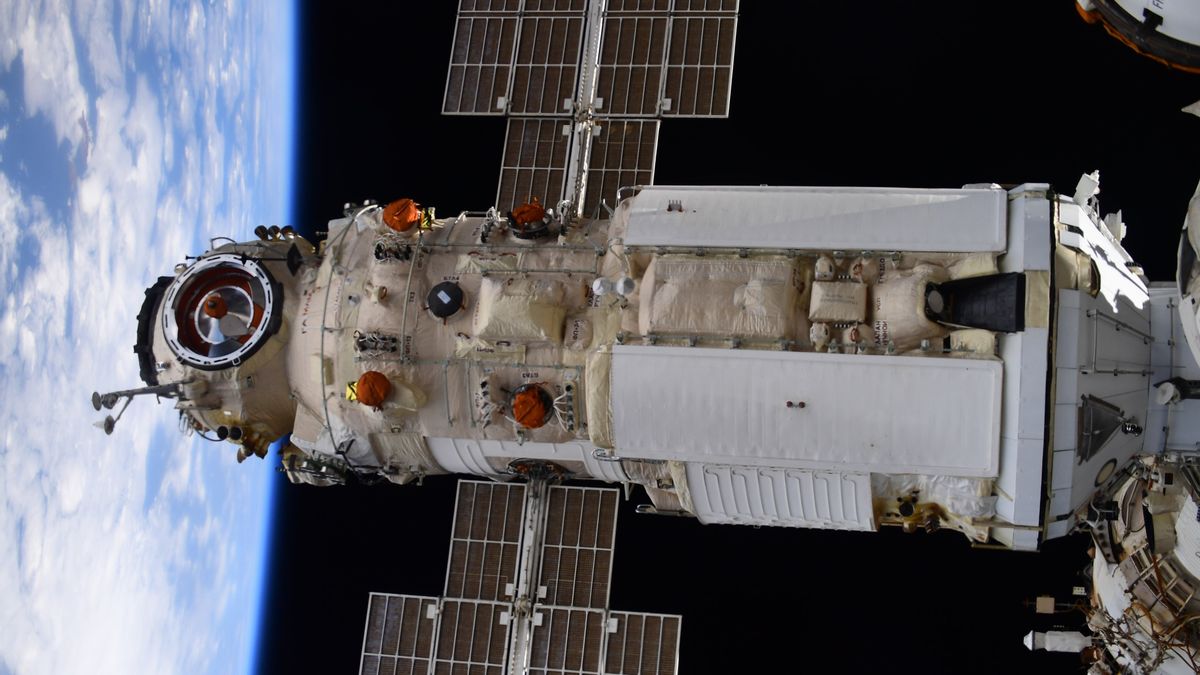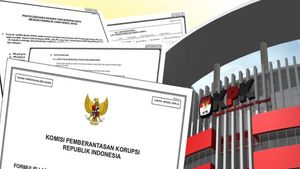JAKARTA - Russia's Nauka module which has just arrived at the International Space Station (ISS) is known to have accidentally fired its booster after docking. This resulted in the laboratory on the ISS orbiting off course.
Fortunately, the ground team on Earth managed to regain control of the ISS. Currently NASA reports his condition is stable. During that extraordinary event, the crew on the ISS were also fine as quoted from Digital Trends, Friday 30 July.
The incident occurred as the Nauka Multipurpose Logistics Module (MLM) docked at the space station at 9:29 a.m. ET on Thursday, July 29. Russian cosmonauts on the space station then carried out routine procedures to check for leaks between Nauka and other service modules.
Three hours after docking, at 12:45 a.m., the flight control team noticed an unplanned firing of the MLM thrusters that caused the station to move out of orientation by 45 degrees.
Congrats to our Russian friends and colleagues! @Space_Station grew today as we welcomed 'Nauka' aboard. This Multi-purpose Laboratory Module will provide a new science facility, docking port, & spacewalk airlock. All have worked hard to ensure this module arrived safely today. pic.twitter.com/TY9KvNZ5ou
— Shane Kimbrough (@astro_kimbrough) July 29, 2021
To return the ISS to the correct orientation, the controller fires the thrusters of another ISS module. They fired boosters at Russia's Zvezda module and the cargo ship Progress currently docked to the ISS. This recovery attempt was successful, and the ISS has returned to its normal orientation.
Currently, NASA and Russia Mission Control and the seven-person ISS crew are continuing to investigate the matter. NASA has announced that the planned launch of the Boeing Starliner spacecraft to the space station today, Friday, July 30, will be postponed. It is not yet known when the flight will take place.
Nauka
The new Nauka module, also known as the Russian Multipurpose Laboratory, will serve as a science facility for experiments, equipped with docking ports to connect incoming spacecraft, and additional airlocks used by crew members before and after spacewalks.
The lab is also bringing in a new robotic arm that will be installed on the outside of the space station and used to assist with space travel, move payloads, and conduct inspections.
When Nauka arrived Thursday morning, and before any sign of trouble, NASA astronaut Shane Kimbrough welcomed the new laboratory on the space station on his Twitter account.
"Everyone worked hard to make sure this module arrived safely today," said Kimbrough.
But just a few hours later, the situation changed drastically when Nauka's engine suddenly started. This is certainly not the first complicated incident the ISS crew and ground controllers have had to deal with. Last year, the ISS had to dodge some potentially dangerous space debris and was heading towards it.
The English, Chinese, Japanese, Arabic, and French versions are automatically generated by the AI. So there may still be inaccuracies in translating, please always see Indonesian as our main language. (system supported by DigitalSiber.id)













